Find Help
More Items From Ergsy search
-
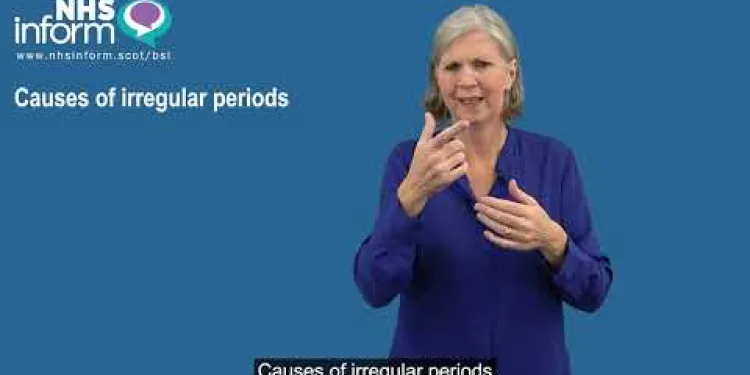
Irregular periods - BSL
Relevance: 100%
-
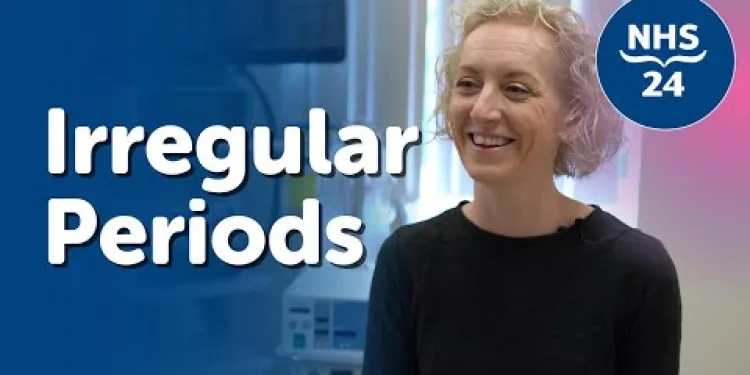
What you need to know about irregular periods
Relevance: 84%
-

How to deal with period pain | NHS
Relevance: 37%
-

What is the notice period for redundancy?
Relevance: 36%
-
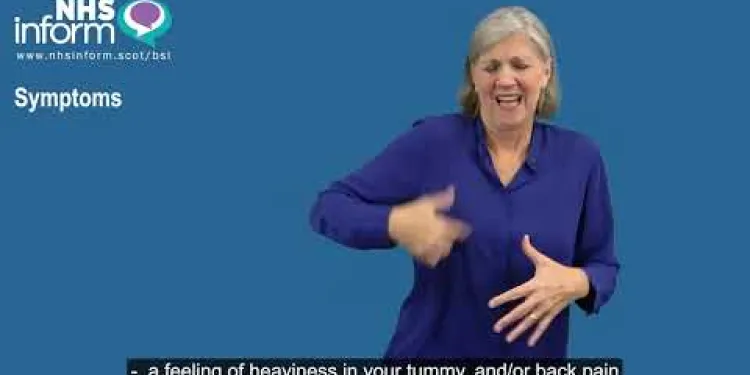
Period pain (dysmenorrhoea) - BSL
Relevance: 36%
-

Has the notice period for eviction changed?
Relevance: 34%
-

How to deal with period pain | NHS
Relevance: 34%
-

How to deal with period pain | NHS
Relevance: 34%
-

How to deal with period pain | NHS
Relevance: 34%
-
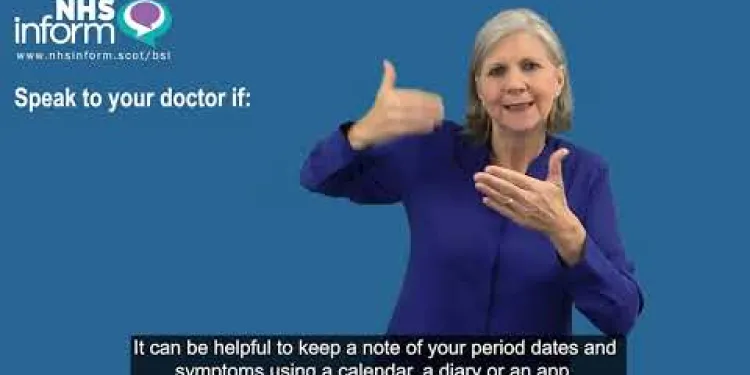
Heavy periods (heavy menstrual bleeding)
Relevance: 33%
-

How long is the incubation period for the Marburg virus?
Relevance: 33%
-

What is the grace period for the penalty point system?
Relevance: 33%
-

Can the test be performed during my menstrual period?
Relevance: 32%
-

What happens when the introductory APR period ends?
Relevance: 31%
-

What is the minimum service period to qualify for firefighter pension benefits?
Relevance: 30%
-

What should I avoid doing during the recovery period?
Relevance: 28%
-

How long is the incubation period for chickenpox?
Relevance: 27%
-

What if I have moved house since the claim period?
Relevance: 27%
-

Does bereavement leave cover funerals for cultures or religions with extended mourning periods?
Relevance: 26%
-

When should I take a pregnancy test?
Relevance: 23%
-

What is the difference between perimenopause and menopause?
Relevance: 20%
-

What exactly is an arrhythmia?
Relevance: 20%
-

Will the test affect my menstrual cycle?
Relevance: 20%
-

Does the menopause just happen suddenly?
Relevance: 19%
-

Can stress affect a pregnancy test result?
Relevance: 17%
-
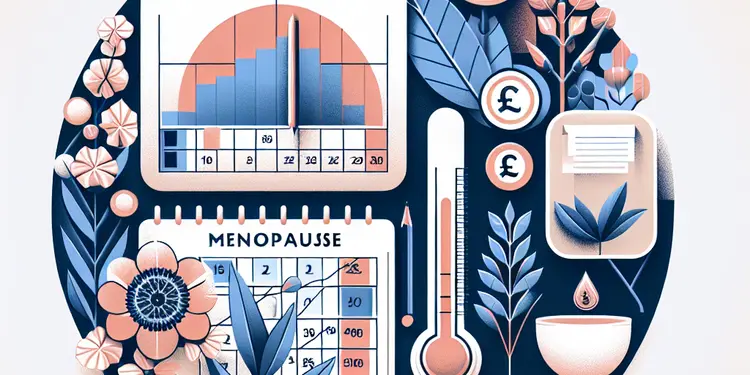
What is menopause?
Relevance: 16%
-
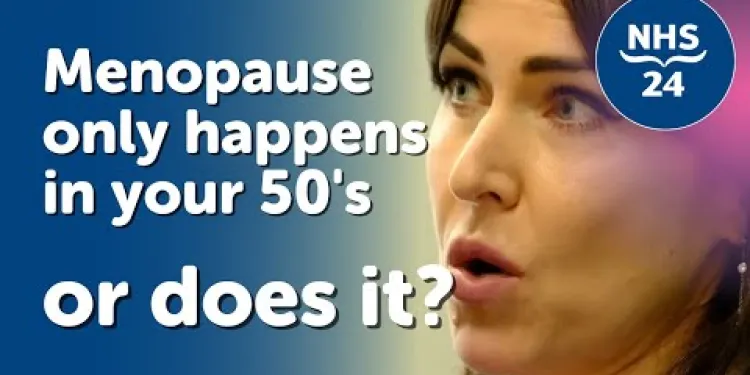
Does Menopause Only Happen in Your 50's? | NHS 24
Relevance: 15%
-

What if my pregnancy test is negative and I still think I'm pregnant?
Relevance: 15%
-

Is my abnormal heart rhythm dangerous?
Relevance: 15%
-

What is menopause masking?
Relevance: 14%
-
What are common symptoms of eating disorders?
Relevance: 14%
-

What is alcohol poisoning?
Relevance: 13%
-
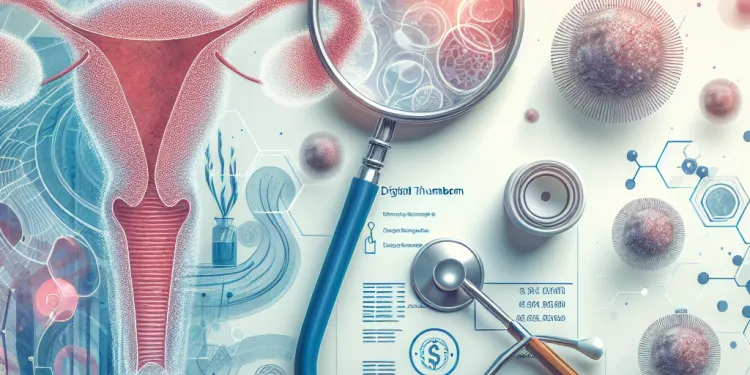
Why is a womb lining test performed?
Relevance: 13%
-
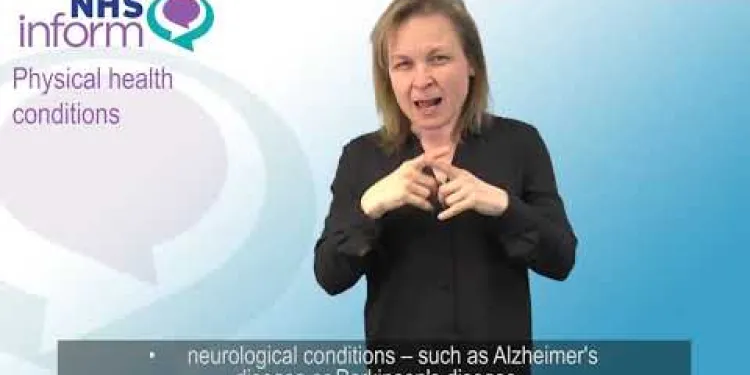
BSL - Causes of insomnia
Relevance: 13%
-

Can binge drinking affect physical health?
Relevance: 13%
-

How long does menopause typically last?
Relevance: 12%
-

Do mosquito screens work for all types of windows?
Relevance: 12%
-

If you want NHS braces, watch this!
Relevance: 12%
-
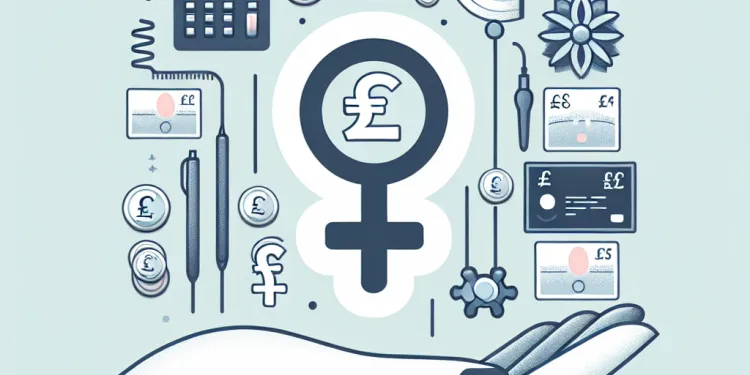
What are the reasons for female infertility?
Relevance: 12%
-

Can a defibrillator restart a stopped heart?
Relevance: 12%
What You Need to Know About Irregular Periods
Irregular periods are a common issue many women face at some point in their lives. Understanding what constitutes an irregular period, possible causes, and treatment options can help manage the condition effectively. Here is what you need to know about irregular periods, aimed at readers in the United Kingdom.
What Are Irregular Periods?
Irregular periods refer to menstrual cycles that vary in length and intensity. A normal menstrual cycle typically ranges from 21 to 35 days. Anything outside this range may be considered irregular. Symptoms can include missed periods, unusually heavy or light bleeding, or cycles that vary significantly from one month to the next.
Causes of Irregular Periods
Several factors can contribute to irregular periods:
- Hormonal Imbalance: Conditions such as polycystic ovary syndrome (PCOS) and thyroid disorders can disrupt hormone levels, leading to irregular cycles.
- Stress: High-stress levels can affect the body’s hormonal balance, leading to changes in the menstrual cycle.
- Weight Fluctuations: Significant changes in weight, whether gain or loss, can impact the regularity of periods.
- Contraceptives: Birth control methods, including pills, IUDs, or implants, can sometimes cause irregular bleeding.
- Medical Conditions: Chronic illnesses, such as diabetes or celiac disease, can interfere with menstrual regularity.
When to Seek Medical Advice
If you experience any of the following, it is advisable to seek medical attention:
- Periods that stop for more than three months without pregnancy
- Bleeding between periods or after sex
- Severe pain during periods
- Sudden changes in menstrual cycle length, frequency, or intensity
Treatment Options
Treatment for irregular periods depends on the underlying cause. Some common approaches include:
- Hormonal Therapy: Birth control pills or hormone therapy can help regulate menstrual cycles.
- Lifestyle Changes: Maintaining a healthy weight, reducing stress, and improving diet can positively impact menstrual regularity.
- Medications: Conditions like PCOS or thyroid disorders may require specific medications to manage symptoms.
- Surgical Options: In some cases, surgical interventions may be necessary to treat underlying issues.
In the UK, National Health Service (NHS) resources and local health providers can offer guidance and support for managing irregular periods. Consulting with a healthcare professional is crucial for a proper diagnosis and treatment plan tailored to your needs.
What You Need to Know About Irregular Periods
Many women have irregular periods at some time in their lives. Knowing what makes a period irregular, why it happens, and how to treat it can help. Here is some helpful information for people living in the United Kingdom.
What Are Irregular Periods?
Irregular periods are when your periods do not follow a regular pattern. A usual cycle is between 21 to 35 days. If it is outside this range, it might be irregular. Symptoms include no periods, very heavy or very light bleeding, or a cycle that changes a lot each month.
Causes of Irregular Periods
Irregular periods can happen for different reasons:
- Hormone Changes: Problems like polycystic ovary syndrome (PCOS) and thyroid issues can cause irregular periods because they change hormone levels.
- Stress: Being very stressed can change your hormones and affect your periods.
- Weight Changes: Gaining or losing a lot of weight can make periods irregular.
- Birth Control: Some birth control, like pills or implants, can cause irregular bleeding.
- Health Problems: Illnesses like diabetes or celiac disease can also affect your periods.
When to Seek Medical Advice
You should talk to a doctor if:
- Your periods stop for more than three months and you are not pregnant
- You bleed between periods or after sex
- You have a lot of pain during periods
- Your cycle changes suddenly in length, how often it happens, or how heavy it is
Treatment Options
How to treat irregular periods depends on why they are irregular. Common treatments include:
- Hormonal Treatment: Birth control pills or other hormonal treatments can help make periods regular.
- Changing Habits: Keeping a healthy weight, eating well, and reducing stress can help make periods more regular.
- Medicine: If you have PCOS or a thyroid problem, you might need medicine.
- Surgery: Sometimes surgery is needed if other problems are causing irregular periods.
In the UK, you can get help from the National Health Service (NHS) or local health providers. It is important to talk to a healthcare professional to find out what is right for you.
Frequently Asked Questions
What is considered an irregular period?
An irregular period is a menstrual cycle that varies significantly from the average 28-day cycle. This can include cycles that are shorter than 21 days or longer than 35 days, missed periods, or unusually heavy or light bleeding.
What are some common causes of irregular periods?
Common causes include stress, significant weight loss or gain, over-exercising, polycystic ovary syndrome (PCOS), thyroid disorders, and perimenopause.
Can stress cause irregular periods?
Yes, stress can affect the hormonal balance, which in turn can lead to irregular periods.
Can changes in diet affect menstrual cycles?
Yes, drastic changes in diet or weight can disrupt hormone levels, potentially causing irregular periods.
How is Polycystic Ovary Syndrome (PCOS) related to irregular periods?
PCOS is a condition characterized by hormonal imbalance, often leading to irregular or missed periods, along with other symptoms like weight gain, acne, and excess hair growth.
When should I see a GP about irregular periods?
Consult your GP if your periods suddenly become irregular, are very heavy, last longer than seven days, are less than 21 days or more than 35 days apart, or if you experience significant pain or other troubling symptoms.
Can birth control help regulate periods?
Yes, hormonal contraceptives like the pill, patch, or IUD can help regulate menstrual cycles for many women.
Are there natural remedies to help with irregular periods?
Some lifestyle changes, such as improving diet, exercising regularly, reducing stress, and maintaining a healthy weight, can help regulate periods. Speak to a healthcare professional before trying herbal supplements or other alternative treatments.
Can irregular periods affect fertility?
Yes, irregular periods can make it more challenging to predict ovulation, which may affect fertility. Underlying conditions causing irregular periods, such as PCOS, can also impact fertility.
What role do thyroid disorders play in menstrual irregularities?
Thyroid disorders, such as hypothyroidism or hyperthyroidism, can disrupt the balance of reproductive hormones, leading to irregular menstrual cycles.
Can exercise impact menstrual regularity?
Extreme exercise or drastic increases in physical activity can affect hormonal balance, potentially causing irregular periods.
Is it normal to have irregular periods during perimenopause?
Yes, as women approach menopause, hormonal fluctuations can cause irregular periods. This phase, called perimenopause, can last several years before menstruation stops completely.
How is irregular menstruation diagnosed?
Your GP may conduct a physical exam, review your medical history, and possibly order blood tests, ultrasounds, or other tests to determine the cause of irregular periods.
Can medication cause irregular periods?
Certain medications, including some antidepressants, antipsychotics, and chemotherapy drugs, can affect menstrual cycles. Discuss any concerns with your GP.
What treatments are available for irregular periods?
Treatment depends on the underlying cause and may include lifestyle changes, medication like hormone therapy, or managing any existing health conditions such as PCOS or thyroid disorders.
What is an irregular period?
A period that is not regular is called an irregular period. Most people have periods every 28 days. But if your period comes in less than 21 days, or more than 35 days, it is called irregular. You might also miss a period or have very heavy or very light bleeding.
If you find reading hard, you can try using these tools to help you:
- Use audiobooks to listen to the text.
- Try text-to-speech apps that read words out loud.
- Highlight important parts in different colors to make them stand out.
Why do some people have periods that are not regular?
Some people have periods that come at different times. Here are some reasons why this might happen:
- Stress: Feeling worried or stressed can change your period schedule.
- Diet: Eating too little or too much can affect your periods.
- Exercise: Doing a lot of sports or hard exercise can make periods change.
- Hormones: Your body’s chemicals might be out of balance.
- Age: Young people or those nearing menopause can have irregular periods.
Helpful tools:
- Use a calendar or an app to track your periods.
- Talk to a doctor or nurse if you are worried.
There are many reasons why periods can change. Some common ones are:
- Feeling very worried or stressed
- Losing a lot of weight or gaining a lot of weight
- Exercising too much
- Having a condition called polycystic ovary syndrome (PCOS)
- Problems with the thyroid gland
- Getting close to menopause, which is when periods stop
If you're worried, it can help to talk to a doctor. You can also use apps to track your periods or write down your symptoms.
Can stress make periods come at different times?
Periods are when bleeding happens from the vagina, usually every month. Sometimes, periods don't come on time. This can be because of stress. Stress is when you feel worried or upset.
If you feel stressed, here are some things that can help:
- Take deep breaths to feel calm.
- Try talking to someone you trust.
- Do something fun that makes you happy.
If you are worried about your periods, it can be good to talk to a doctor.
Yes, being stressed can change your body's hormones. This can make your periods come at different times.
Can the food we eat change our periods?
Yes, big changes in what you eat or how much you weigh can change your body's hormones. This might make your periods not come on time.
Why does PCOS cause irregular periods?
PCOS stands for Polycystic Ovary Syndrome.
PCOS is a health problem that affects how a woman's ovaries work.
Your ovaries are important because they help control your periods.
Sometimes, if you have PCOS, your ovaries don’t work the way they should.
This can make your periods come at different times or not at all.
Here are some things you can do for help:
- Talk to a doctor. They can help you understand PCOS.
- Write down when you get your period each month to look for patterns.
- Use a calendar or app to track your periods.
PCOS is a health problem. It happens when your hormones are not balanced. This can cause your periods to be irregular or sometimes not happen at all. Other signs of PCOS can be gaining weight, having pimples, and growing extra hair.
When should I see a doctor about periods that are not regular?
It is a good idea to visit the doctor if your periods are not coming regularly. This means if they come at different times each month, or if they are very heavy or very light.
If you feel worried or have pain, the doctor can help. You can talk to them about your periods. They are there to help you feel better.
Try using a calendar to mark the days you have your period. This can help you keep track and show the doctor what's happening.
If your periods change a lot, talk to your doctor. Here’s when to see them:
- If your periods are not regular anymore.
- If they are very heavy.
- If they last more than seven days.
- If they come less than 21 days apart or more than 35 days apart.
- If they cause a lot of pain or other problems.
Try writing down your symptoms to make it easier to remember when you talk to your doctor. You can also use a calendar or a phone app to track your periods.
Can birth control help with periods?
Can taking birth control pills help make periods more regular?
Birth control pills might help manage when your period comes. It can make periods more regular.
If you have trouble with your periods, talk to a doctor. They can give advice.
Using a calendar to track your periods can help too. There are apps that can remind you about your period.
Yes, some medicines like the pill, patch, or IUD (tiny device put in the body by a doctor) can help make periods regular for many girls and women.
Can natural things help with uneven periods?
Some people have problems with their periods. They may come at different times, not regularly. There are some natural ways that might help:
- Food: Eating healthy can help. Try lots of fruits and vegetables.
- Exercise: Being active is good for your body. Try walking, dancing, or playing outside.
- Relaxation: Feeling calm is important. Try deep breathing or listening to music.
Ask a grown-up you trust for advice. They can help you find what works best for you. There are also apps that can remind you to check on your health.
There are some simple things you can do to make your periods better. Eating healthy food, doing exercises, staying calm without too much stress, and keeping a healthy weight can all help. Talk to a doctor or nurse before taking any herbal medicines or trying other treatments. They can help you know what is safe and what is good for you.
Can irregular periods make it harder to have a baby?
Yes, if your periods are not regular, it can be harder to know when you are ovulating. This can make it harder to have a baby. Sometimes, health problems like PCOS can also make it hard to have a baby.
How do thyroid problems affect periods?
Your thyroid is a gland in your neck. It helps control your body's energy and many important things.
If your thyroid does not work well, it can change your period. Your period might come too often, not often enough, or it might stop.
Talking to a doctor can help. They can check if your thyroid is working right.
Using a calendar to track your period can also help you see the changes.
The thyroid is a small gland in your neck. It can cause problems like hypothyroidism (not enough thyroid hormone) or hyperthyroidism (too much thyroid hormone). These problems can affect your body’s balance and cause your periods to be irregular, which means they don’t come when you expect them to.
If reading is hard for you, try using a text-to-speech tool to hear the words out loud. This can help you understand better!
Can exercise change how regular periods are?
Doing too much exercise or suddenly doing a lot more exercise can change your hormones. This might make your periods come at unusual times.
Is it normal to have uneven periods before menopause?
Many people have uneven periods before menopause. This time is called perimenopause.
Your body changes during perimenopause. This can make periods come at different times. It's normal.
If worried, talk to a doctor. They can help. Try keeping a calendar to track your periods. This can be helpful.
Yes, when women get closer to menopause, their hormones can change a lot. This can make their periods come at odd times. This time is called perimenopause. It can last for many years until the periods stop for good.
To help understand this better, you can use apps that track periods and mood changes. It's also good to talk to a doctor if you have questions.
How do doctors find out about irregular periods?
Your doctor might check your body, ask about your health in the past, and do some tests. These tests could be blood tests or scans like an ultrasound. This helps to find out why your periods are not regular.
Can medicine change periods?
Some medicines can change your periods. This includes some tablets for mood, mental health, and cancer. Talk to your doctor if you are worried.
What can help if periods are irregular?
Periods are when girls and women bleed from their vaginas every month. Sometimes, periods do not come at the same time each month. This is called irregular periods.
There are different ways to help with irregular periods:
- Healthy Eating: Eating fruits and vegetables can help the body work well.
- Exercise: Moving the body, like playing or walking, is good for health.
- Doctor's Help: A doctor can give advice and medicine if needed.
It can also be helpful to keep a calendar and mark each time a period starts. This can help you see a pattern and talk with a doctor.
Treatment depends on what is causing the problem. You might need to change how you live, take medicine like hormone pills, or take care of health problems you already have, like PCOS or thyroid issues.
Useful Links
This website offers general information and is not a substitute for professional advice.
Always seek guidance from qualified professionals.
If you have any medical concerns or need urgent help, contact a healthcare professional or emergency services immediately.
Some of this content was generated with AI assistance. We’ve done our best to keep it accurate, helpful, and human-friendly.
- Ergsy carfully checks the information in the videos we provide here.
- Videos shown by Youtube after a video has completed, have NOT been reviewed by ERGSY.
- To view, click the arrow in centre of video.
- Most of the videos you find here will have subtitles and/or closed captions available.
- You may need to turn these on, and choose your preferred language.
- Go to the video you'd like to watch.
- If closed captions (CC) are available, settings will be visible on the bottom right of the video player.
- To turn on Captions, click settings .
- To turn off Captions, click settings again.
More Items From Ergsy search
-

Irregular periods - BSL
Relevance: 100%
-

What you need to know about irregular periods
Relevance: 84%
-

How to deal with period pain | NHS
Relevance: 37%
-

What is the notice period for redundancy?
Relevance: 36%
-

Period pain (dysmenorrhoea) - BSL
Relevance: 36%
-

Has the notice period for eviction changed?
Relevance: 34%
-

How to deal with period pain | NHS
Relevance: 34%
-

How to deal with period pain | NHS
Relevance: 34%
-

How to deal with period pain | NHS
Relevance: 34%
-

Heavy periods (heavy menstrual bleeding)
Relevance: 33%
-

How long is the incubation period for the Marburg virus?
Relevance: 33%
-

What is the grace period for the penalty point system?
Relevance: 33%
-

Can the test be performed during my menstrual period?
Relevance: 32%
-

What happens when the introductory APR period ends?
Relevance: 31%
-

What is the minimum service period to qualify for firefighter pension benefits?
Relevance: 30%
-

What should I avoid doing during the recovery period?
Relevance: 28%
-

How long is the incubation period for chickenpox?
Relevance: 27%
-

What if I have moved house since the claim period?
Relevance: 27%
-

Does bereavement leave cover funerals for cultures or religions with extended mourning periods?
Relevance: 26%
-

When should I take a pregnancy test?
Relevance: 23%
-

What is the difference between perimenopause and menopause?
Relevance: 20%
-

What exactly is an arrhythmia?
Relevance: 20%
-

Will the test affect my menstrual cycle?
Relevance: 20%
-

Does the menopause just happen suddenly?
Relevance: 19%
-

Can stress affect a pregnancy test result?
Relevance: 17%
-

What is menopause?
Relevance: 16%
-

Does Menopause Only Happen in Your 50's? | NHS 24
Relevance: 15%
-

What if my pregnancy test is negative and I still think I'm pregnant?
Relevance: 15%
-

Is my abnormal heart rhythm dangerous?
Relevance: 15%
-

What is menopause masking?
Relevance: 14%
-
What are common symptoms of eating disorders?
Relevance: 14%
-

What is alcohol poisoning?
Relevance: 13%
-

Why is a womb lining test performed?
Relevance: 13%
-

BSL - Causes of insomnia
Relevance: 13%
-

Can binge drinking affect physical health?
Relevance: 13%
-

How long does menopause typically last?
Relevance: 12%
-

Do mosquito screens work for all types of windows?
Relevance: 12%
-

If you want NHS braces, watch this!
Relevance: 12%
-

What are the reasons for female infertility?
Relevance: 12%
-

Can a defibrillator restart a stopped heart?
Relevance: 12%


